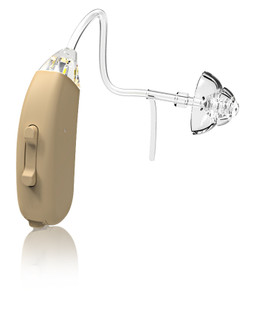Innovative Treatments for Hearing Loss: What's on the Horizon?
Posted by DR Paul on Sep 21, 2024
Hearing loss is a common condition that affects millions of people worldwide. While hearing aids have long been the go-to solution for managing hearing loss, advancements in technology have led to the development of innovative treatments that offer new hope for those struggling with this condition. In this blog post, we will explore some of the cutting-edge treatments for hearing loss that are on the horizon, and how they may revolutionize the way we approach hearing health.
Cochlear Implants:
Cochlear implants are a type of electronic device that can provide a sense of sound to individuals who are deaf or severely hard-of-hearing. Unlike traditional hearing aids, which amplify sounds, cochlear implants bypass damaged parts of the ear and directly stimulate the auditory nerve. This technology has been around for several decades but continues to be refined and improved upon. Newer models offer better sound quality, improved speech understanding, and enhanced comfort for users.
Gene Therapy:
Gene therapy is an exciting area of research that holds promise for treating genetic forms of hearing loss. Scientists are working on developing therapies that can target specific genes responsible for causing hearing loss and either repair or replace them. While this treatment is still in its early stages, it has shown promising results in animal studies and clinical trials. In the future, gene therapy could offer a personalized approach to treating hearing loss based on an individual's unique genetic makeup.
Hair Cell Regeneration:
One of the leading causes of sensorineural hearing loss is damage to hair cells in the inner ear. Researchers are actively exploring ways to regenerate these cells using stem cell therapy, growth factors, and other regenerative techniques. By restoring damaged hair cells, it may be possible to reverse or prevent hearing loss altogether. While this treatment is still experimental and not yet widely available, it represents a promising avenue for future interventions in treating hearing loss.
Brain Stimulation:
Recent studies have shown that stimulating certain areas of the brain can improve auditory processing and help individuals with hearing loss better understand speech in noisy environments. Transcranial magnetic stimulation (TMS) and transcranial direct current stimulation (tDCS) are two non-invasive techniques that show potential in enhancing auditory perception in individuals with varying degrees of hearing loss. As researchers continue to explore the effects of brain stimulation on auditory function, this treatment may become more widely used as a complementary therapy alongside traditional interventions like hearing aids.
Nanotechnology:
Nanotechnology involves manipulating materials at an atomic or molecular scale to create devices with unique properties and applications. In the field of audiology, nanotechnology holds promise for developing more advanced hearing aid technologies that are smaller, more discreet, and more effective at improving sound quality. Nanomaterials can enhance signal processing capabilities, improve battery life, and even enable wireless connectivity features in next-generation devices. By incorporating nanotechnology into hearing healthcare products, manufacturers can offer consumers innovative solutions that address their specific needs.
Conclusion:
In conclusion, innovative treatments for hearing loss are rapidly evolving and hold great promise for improving outcomes for individuals with this condition. From cochlear implants to gene therapy to regenerative medicine approaches like hair cell regeneration, there are numerous cutting-edge treatments on the horizon that may transform how we think about managing hearing health in the future. As technology continues to advance and research progresses, we can expect to see even more groundbreaking developments that will benefit those affected by hearing loss. For individuals considering purchasing a new hearing aid or exploring alternative treatment options, staying informed about these innovative approaches can help guide their decisions and lead them towards improved quality of life through better auditory function.










